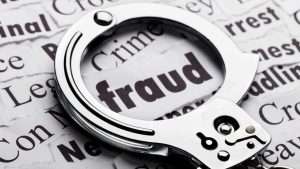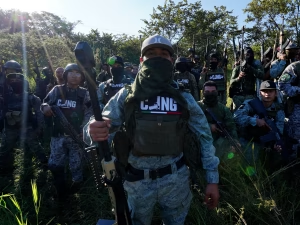We hear from David Cook, who dives deep into the processes involved in offering his expertise as a forensic accountant and the challenges that he faces on a regular basis.
What is the role of a forensic accountant?
We specialise in dealing with legal disputes involving money, both criminal and civil. In most cases we are instructed by a lawyer to investigate a situation, produce an independent expert’s report suitable for the Court, and when necessary, give evidence in Court. That can be as a party expert, instructed by one of the parties in a dispute; a single joint expert, normally where the Court specifies this, (which is often the case in matrimonial disputes); independent expert to determine a dispute, usually under the terms of a contract, or sometimes as a shadow expert to advise a party on a dispute.
How does the work performed by a forensic accountant differ in civil and criminal cases?
Firstly, in some respects they are often very similar. Investigation of financial transactions and production of an independent expert’s report, independent opinion and giving evidence for the benefit of the Court, are common to both. The main differences are:
- In a civil case, any of the roles that I set out in my answer above can apply. In a criminal case you would only ever act as a party expert for the prosecution or defence.
- Civil cases are decided on the “balance of probability”; effectively the claimant has to prove their case’s likelihood above 50%. Criminal cases are decided on “proof beyond reasonable doubt”; the prosecution have to prove their case to that standard.
- They each have their own “CPR” – the Civil Procedure Rules for civil cases and the Criminal Procedure Rules for criminal cases. Work and reports are carried out under the appropriate rule.
- A criminal report would carry the added declaration that “I have dealt correctly with disclosure and complied with my duty to record, retain and reveal material in accordance with the Criminal Procedure & Investigations Act 196, as amended”.
This impacts on the approach to the work, the manner in which information is handled and the degree of certainty that is needed in an opinion.
Civil cases are decided on the “balance of probability”; effectively the claimant has to prove their case’s likelihood above 50%.
On the criminal side, what is the typical process involved in investigating a case of suspected money laundering?
This to quite an extent depends on whether you are instructed by the prosecution or the defence.
When instructed by the prosecution you would examine the police reports, witness statements and documents, then review the relevant financial transactions to see whether how and to what extent these are properly recorded, fail to comply with the Money Laundering Regulations – bearing in mind the organisation’s own regulations, if applicable – and who was responsible for the faults. You would then write a report setting out the relevant transactions, the manner and extent to which they do not comply with the regulations and who was responsible.
When instructed by the defence you would expect to have some form of report setting out the prosecution’s case, together with the documents and information that they have used. After review, you would probably meet with the defendants and their lawyers to obtain their view on the charges and information produced and to ascertain what further documents and information are available. You would be looking to see to what extent the information and transactions are correctly shown or not, the extent to which they have been correctly interpreted and the extent to which further information changes the position.
If, and to the extent that you disagree with the prosecution’s case, you will produce a report setting out your findings and opinion. In a case where you agree that the regulations have been breached you may disagree on the extent/amount of it and in some cases who is responsible. As a simple example, the prosecution may have produced a schedule of transactions carried out on a password-protected computer allocated to a member of staff and hold them responsible for those offences. Your enquiries may have shown that passwords were generally known in the office and it was quite common for computers to be used by different staff members, so that allocating responsibility for specific transactions would not be practicable or certain.
How do you present your evidence to the Court?
Firstly, this is much more likely in criminal rather than civil cases. In criminal cases, where instructed, it is exceptional for me not to go to Court, whereas in civil cases it happens in a minority of cases, as the civil procedures are designed so that as far as possible cases are settled before reaching a Court hearing, and that happens by various means.
In criminal cases, where instructed, it is exceptional for me not to go to Court, whereas in civil cases it happens in a minority of cases.
In either case, it is very much the norm for my findings to be presented to the Court and the parties in a formal report complying with the relevant CPR. Where there are expert reports produced for both parties, it would be normal for the Court to order the experts to meet to discuss the position and produce a joint statement setting out any areas where opinions have changed as a result of that and specifying the areas in which they now agree and disagree.
Unless the other party does not dispute my findings, which does happen sometimes, I would then go to Court to give formal evidence. That would be by the lawyer for my instructing party taking me through my report and evidence, then being cross-examined by the other party’s lawyer, with probably some questions from the judge, and then possibly re-examined by the first lawyer on points arising. For this you have to make sure that you are well prepared, understand the case and your report completely, keep calm and answer questions clearly and relevantly.
Why is a specialist’s insight important in these cases?
In most cases, witnesses (especially in criminal matters) will be witnesses of fact and they are not allowed to give opinions. Expert witnesses are different in that they will have an acknowledged expertise in the area that they are dealing with and are therefore allowed to, indeed expected to, give an expert opinion on the position based on their experience and the information. My report will state that ”I report as an expert witness not as a witness of fact”.
Experts are required to comply with Practice Direction 35, which states:
“2.1. Expert Evidence should be the independent product of the expert uninfluenced by the pressures of the litigation.
2.2. Experts should assist the Court by providing objective, unbiased opinions on matters within their expertise and should not assume the role of an advocate.”
Experts who do not comply with the Practice Direction are likely to be censored by the Court and there have been several examples of this.
You have to make sure that you are well prepared, understand the case and your report completely, keep calm and answer questions clearly and relevantly.
How has the COVID-19 pandemic affected the way you work on cases like this?
The pandemic has had a very significant effect on the position in several ways. For one, there is now very much a focus on working from home. This has a significant impact on working with other people, allocating and controlling work and discussing information and findings on a day-to-day basis as the case progresses. That has not been ideal but works well in most circumstances once you adjust to it.
Furthermore, almost all meetings with lawyers, clients, sources of information and some hearings have been online, with varying degrees of difficulty. This has worked much better than I would have expected in a fair number of cases. It works best with small numbers where you all have the relevant documents. For example, I recently had an experts’ meeting on a case; the other expert was in London and I am based in Bristol. We would normally, without the pandemic restrictions, have discussed where to meet – possibly halfway, in Swindon – but as it was it worked very well on Zoom.
It does not work as well in larger meetings and where documents are exchanged at the time. It is particularly difficult in respect of a client in custody, where you need to go through documents with them, but which they do not have, as it is very hard to get documents to them in time for a meeting and confidentially.
We would normally, without the pandemic restrictions, have discussed where to meet – possibly halfway, in Swindon – but as it was it worked very well on Zoom.
Outside of independent determination, virtually all the cases that I currently deal with are run by the Court. In the Pandemic Court, business and transactions have slowed right down. Some staff are at home and the lockdown restrictions make conducting Court business much harder and slower. For example, difficulties involved in holding a jury trial and complying with the pandemic safeguards has meant severe delays. Just getting a Court ruling on a matter, which impacts the conduct or basis of a case, can take considerable time.
I carry out a lot of valuations of companies in dispute situations. That happens in quite a cross section of my work, such as shareholder, partnership and matrimonial disputes, professional negligence, disputes following the sale of a company and once in a murder trial and a corporate manslaughter case.
The precise date of a valuation is always important, as this affects the financial information available to consider. Now it is even more important than ever as the position on a valuation up to February 2020 is quite different to one after that date.
The current situation is the most difficult and uncertain that I have ever encountered, with considerable market unrest and volatility and stock market changes with generally reductions in PEs and multiples. Past performance has a lot less relevance, with companies, even in the same sector, being affected differently and future prospects being very uncertain and even a real risk of total loss. A minority of businesses have been doing well in the pandemic, such as Zoom. After a shaky period, there has been considerable M&A activity, but buyers especially cash buyers are very cautious, in a strong position and looking for bargains. There is a greater emphasis on deferred consideration.
In the Pandemic Court, business and transactions have slowed right down.
In this situation a valuer would much prefer to give a range of values, rather than a specific figure, Court permitting, and would expect to give a material uncertainty declaration in their opinion.
Emphasis will be on the current trading and financial position of the business in detail and the sector, with a view to using more than one valuation approach and reconciling these into a conclusion.
What other challenges do you often face as part of your role?
As I mentioned above, one of the main challenges I face is cross-examination in Court. The opposing barrister will try to disrupt and discredit you and get you to contradict yourself. They will often use off-key questions to try to unsettle you, such as questioning your qualifications, independence or sources of information. I have on some occasions been in the witness box for a week being questioned by several barristers, and you need to be very careful to remember what you have said in response to previous points as well as remain consistent in your approach.
Another challenge involves being asked by solicitors – usually ones that I have not previously dealt with – to quote for a matter, such as a company valuation, without any information on the size or complexity of the business and them being surprised, or worse, when I request information before quoting.
The precise date of a valuation is always important, as this affects the financial information available to consider.
Meeting time constraints, such as Court deadlines, is often a challenge and is something that I make sure I can meet. That is even more so when the approach is late in the proceedings and a short timescale given. Unless I am sure that I can meet that timing, I will say that I can produce the required report, but not in that timescale.
Alterations to instructions are another challenge. I will receive written instructions when I undertake a case, which in some cases can then be altered. That is usually in one of two ways:-
- Either because, in the course of my investigation, I reveal something which has an effect on what is needed. For example, on a valuation of a company and its three subsidiaries, all in the UK, I discovered, hidden in the assets of one subsidiary at a nominal value, three US companies, which considerably impacted on the time needed and the cost.
- Or, usually where the barrister is not totally involved at the start, once they look at the position, possibly on my draft report, wanting the matter to go in a different direction.
There are also occasions where my draft report/opinion is not liked, and I can be asked to “adjust” this. Unless this is as a result of relevant information of which I was not previously aware, then I will decline.
Meeting time constraints, such as Court deadlines, is often a challenge and is something that I make sure I can meet.
I have also been asked to guarantee my opinion up front! For example, in respect of a dispute between a solicitor and the Law Society, I quoted for producing a report, as required by his barrister. The solicitor then contacted me to say that he would accept my quote and instruct me if I would guarantee to give the opinion that he wanted. I declined to act.
What is the Academy of Experts and the Society of Expert Witnesses and what do they do?
All forensic accountants do not also carry out expert witness work. That can be because they do not carry out the type of investigation work that will result in legal/Court action or because they are in a department with a larger firm where only a few people at the head will do that.
Producing an independent expert report and giving evidence are quite different, and although ICAEW give support and information in respect of that, the Academy of Experts is a renowned organisation that accredits by examination, offers training, supplies standard documentation, supports expert witnesses and provides the opportunity to meet and discuss with experts in other fields, such as medical. The Society of Expert Witnesses fulfils a similar role, has a similar function and I tend to regard it as backup to the Academy.
[ymal]
David Cook, Chairman
Kestrel Court, Harbour Road, Portishead, Bristol, BS20 7AN
Tel: +44 (0)1275 390407
http://www.drcforensics.co.uk/index.html
David Cook
I am a forensic accountant and expert witness, Chairman of DRC Forensics Ltd, based in Portishead, Bristol. I am a chartered accountant, accredited by the Institute (ICAEW) as a forensic accountant and a member of the Academy of Experts, accredited by them as an expert witness. I am also a magistrate, a member of the Society of Expert Witnesses and the Professional Negligence Lawyers Association.





















